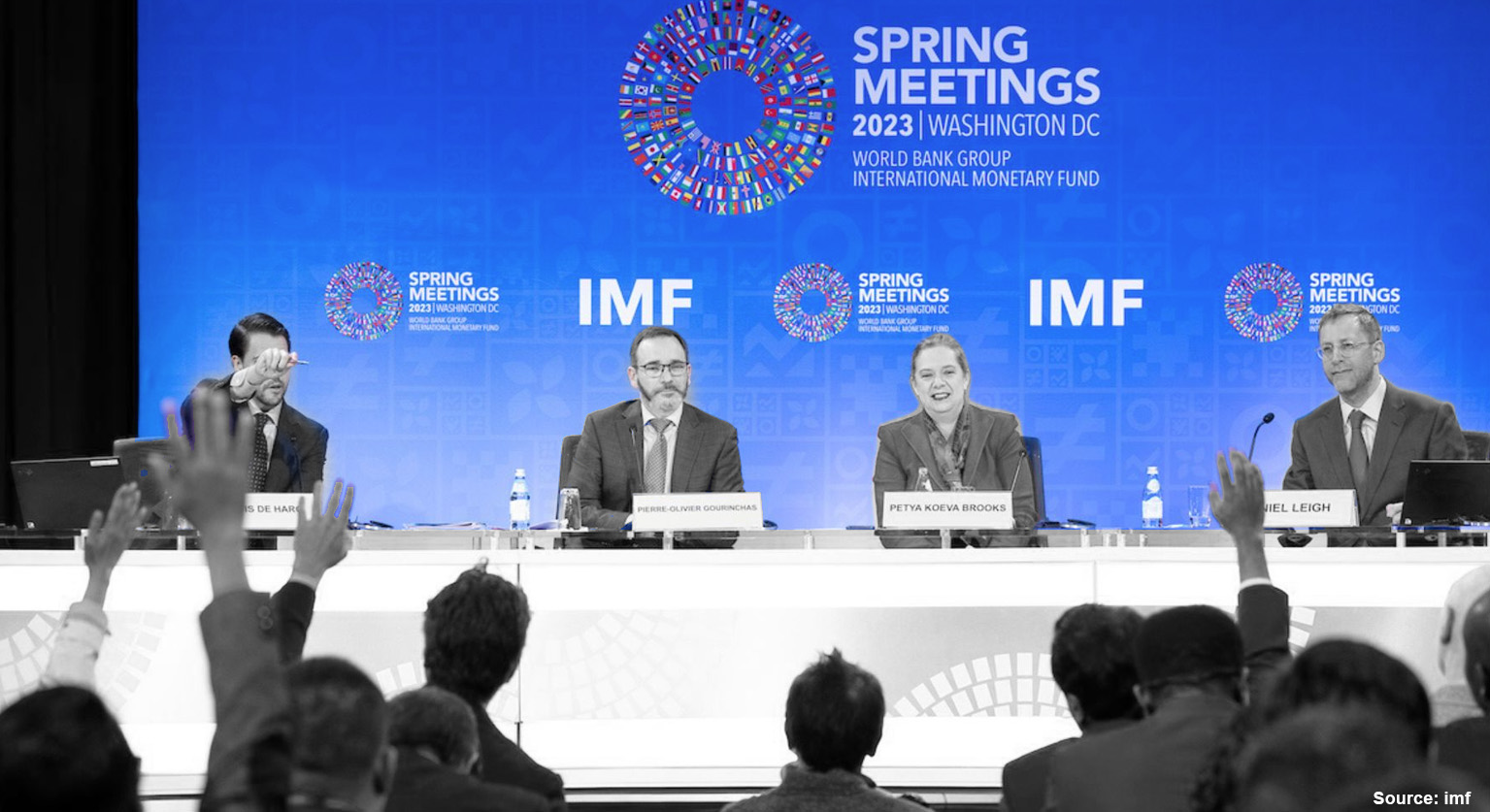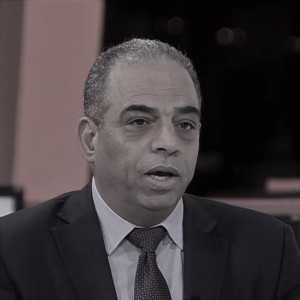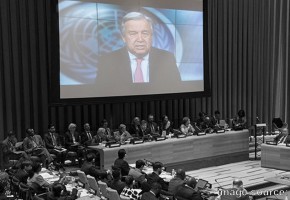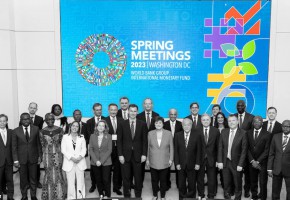
Ahmad Awad

Reflections on the 2023 Spring Meetings of the IMF and the World Bank
Ahmad M. Awad, Phenix Center for Economic and Informatics Studies.
The annual Spring Meetings of the International Monetary Fund (IMF) and the World Bank held in Washington, D.C. during April 2023 saw debates and discussions on several key issues, both during official meetings and on its sidelines. Those meetings have now concluded, but much remains to be done. For years, civil society organizations have been championing for change, and their concerted efforts are gaining momentum towards much-needed reform: Some government representatives and experts have now joined the call pushing for reform, particularly regarding the IMF’s system of governance.
The IMF plays a central role in shaping and outlining the economic policies and reform plans that countries must adhere to when resorting to IMF financial assistance under its various programs. Even though some governments are the ones who eventually develop these policies, their design reflects the IMF’s conditionality regarding austerity and neoliberal policies. The current structure of the global economic system has allowed the IMF to hold the “magic key” that determines how governments with faltering economies are able to obtain development loans from international financial institutions, developed countries, or the global banking sector, which itself profits from these market participants who make use of new financial products. At the same time, the door for a majority of foreign funding sources remains closed to those who the IMF deems non-compliant with its economic philosophy. These funding sources become inaccessible to countries even when a government urgently seeks funds to cover budget deficits and its current account for balance of payments, which exposes that country to further financial and broader economic risks.
Experts, therefore, have expressed concerns about the effectiveness of the IMF and the World Bank's recommended solutions for managing international debt, arguing that these policies often worsen economic instability instead of providing stability. Instead of offering practical strategies for addressing economic decline caused by debt, the IMF's policies have been criticized for creating a volatile environment that can trigger a collapse in the international economy at any moment. Despite the IMF's attempts to alleviate debt through various programs and collaborations with dozens of countries, these efforts have largely failed to achieve their intended goals. Instead, the debt burdens of these nations have continued to expand, posing a serious threat to both the domestic and global economy, like a ticking time bomb waiting to detonate.
The IMF's interventions, designed to liberalize markets, suppress wages, eliminate subsidies for essential goods, and weaken labor standards, have been heavily criticized for exacerbating poverty rates and perpetuating social and economic inequality. Furthermore, the IMF has moved towards a targeted approach for social protection, which involves providing cash aid to a small number of individuals instead of implementing comprehensive programs. This has resulted in increased poverty and a lack of coherence in social protection programs, highlighting the structural issues inherent in the IMF's interventions.
At the heart of these issues lies the fundamental inequity of the IMF system of governance and unjust division of voting powers. The current system’s voting majority is held by a limited number of states which excludes the voices of many other countries. This is reflective of the global system’s lack of inclusion and fairness to the broader international community. The current IMF voting process, which is based on a quota system, reveals a considerable power imbalance. A handful of countries hold more power than the rest of the countries combined, while countries most in need of liquidity and financial assistance, particularly during the pandemic, are virtually absent from the decision-making process.
One of those instances is the issue of imposing additional surcharges on a country if their debt obligation exceeds a certain limit. Human Rights experts and independent research centers have called into question whether imposing these surcharges in addition to the country’s existing loans is fair and aligns with the IMF’s pledged commitment to assist countries with pervasive structural problems. This is because the imposition of such surcharges only worsens the country’s economic challenges and increases its need for assistance.
Calls to reform the IMF’s methods of governance have gained further traction following the distribution of the Special Drawing Rights, which the IMF allocated to countries two years ago to help support economic recovery from the COVID-19 pandemic. However, the majority of these funds went to developed countries as opposed to poorer countries in dire need of financial assistance. Governments representing low-income countries were severely underrepresented in decision-making process and thus had hardly any say in the timing, amount and allocation mechanism for distributing the Special Drawing Rights, contrary to economic logic and common sense.
Experts therefore demand to reform the IMF’s system of governance, including by restructuring decision-making processes, allowing countries most in need of aid to play a greater role. IMF interventions and austerity policies, which are responsible for exacerbating numerous economic and social problems, need to be reconsidered. These policy changes should ultimately aim to compensate local communities that have been harmed by the implementation of projects funded by the IMF and the World Bank. We must collectively encourage and advocate for these long-awaited reforms.
Ahmad M. Awad
Recent publications

ANND Newsletter January 2026 - From Davos to the UPR: Between Promises, and Accountability
Related publications


